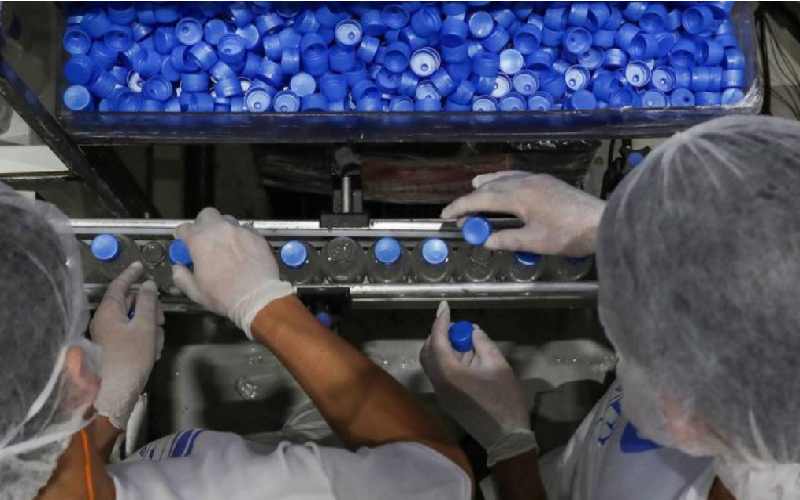×
The Standard e-Paper
Home To Bold Columnists

Employees put caps on bottles of ethanol-based hand sanitizers in a factory in Brazil, March 25, 2020. [Reuters]
Soaring global demand for hand sanitiser to combat the new coronavirus could increase the use of forced and child labour in sugarcane plantations, UK-based researchers said on Thursday.